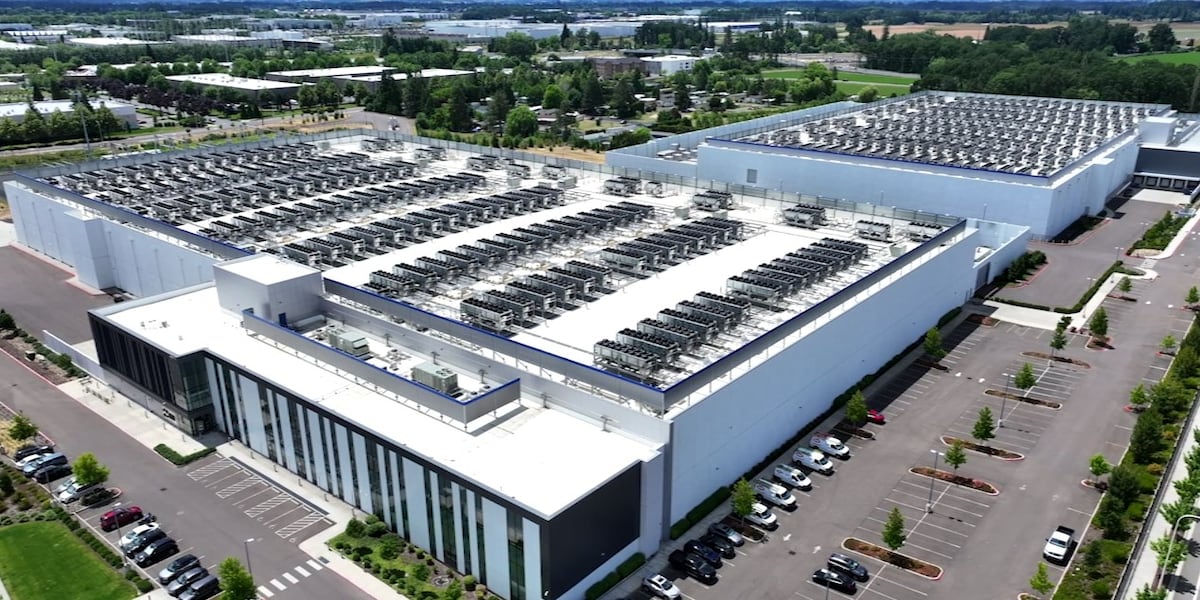It's about time. There is no reason that we should be paying higher energy costs because of these large companies. They have plenty of money and should have been paying higher rates years ago to offset the costs to upgrade the grid to accommodate their power needs instead of those costs being passed onto us.
Amazon Mkt Cap $2.34 trillion 2024 Net profit $30.43 billion
Google Mkt Cap $2.99 trillion 2024 Net profit $73.80 billion
Microsoft Mkt Cap $3.83 trillion 2024 Net profit $88.14 billion
The Oregon POWER Act (HB 3546) aims to hold large energy users accountable for their energy consumption, particularly targeting data centers and cryptocurrency businesses. It requires state regulators to create policies that ensure these large users pay for their own energy needs, thereby protecting Oregon households from bearing the costs associated with these facilities. The act also directs electric companies to assign the costs of serving large energy use facilities to those facilities, mitigating risks to other electricity consumers. Overall, the POWER Act is designed to safeguard residential and small business ratepayers from rising energy costs due to the demands of large energy users.
"Oregon currently has 131 of these centers, and they all use large amounts of electricity which strains the power grid, and your wallet.
But how much electricity are these centers actually using?
To add context, a smaller, 30-megawatt data center will use as much electricity as the city of Ashland. Larger AI data centers, using around 250 megawatts, are equivalent to the usage of the city of Eugene.
The energy used by these centers comes at a cost, but the bill has been shared with all of us."
"Opposers of the bill, like the Data Center Coalition and Amazon Web Services, say they are concerned that by singling out the industry, data centers might decide to move and set up in other states, taking potential jobs with them."
“They have money, but they don’t want to use their money. They want to use the public’s money.”
The new bill, recently signed into law by Governor Kotek, aims to give financial power back to the community.

 www.kptv.com
www.kptv.com
Amazon Mkt Cap $2.34 trillion 2024 Net profit $30.43 billion
Google Mkt Cap $2.99 trillion 2024 Net profit $73.80 billion
Microsoft Mkt Cap $3.83 trillion 2024 Net profit $88.14 billion
The Oregon POWER Act (HB 3546) aims to hold large energy users accountable for their energy consumption, particularly targeting data centers and cryptocurrency businesses. It requires state regulators to create policies that ensure these large users pay for their own energy needs, thereby protecting Oregon households from bearing the costs associated with these facilities. The act also directs electric companies to assign the costs of serving large energy use facilities to those facilities, mitigating risks to other electricity consumers. Overall, the POWER Act is designed to safeguard residential and small business ratepayers from rising energy costs due to the demands of large energy users.
"Oregon currently has 131 of these centers, and they all use large amounts of electricity which strains the power grid, and your wallet.
But how much electricity are these centers actually using?
To add context, a smaller, 30-megawatt data center will use as much electricity as the city of Ashland. Larger AI data centers, using around 250 megawatts, are equivalent to the usage of the city of Eugene.
The energy used by these centers comes at a cost, but the bill has been shared with all of us."
"Opposers of the bill, like the Data Center Coalition and Amazon Web Services, say they are concerned that by singling out the industry, data centers might decide to move and set up in other states, taking potential jobs with them."
“They have money, but they don’t want to use their money. They want to use the public’s money.”
The new bill, recently signed into law by Governor Kotek, aims to give financial power back to the community.

New law affecting data centers could lead to some Oregonians seeing lower electric bills
A new law could lead to some Oregonians seeing lower electric bills. FOX 12 Investigates has more on the power act, and the impact it could have on your wallet.





